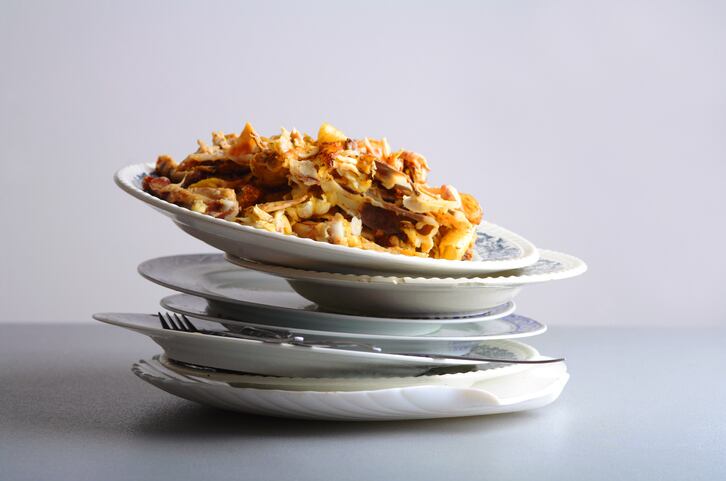The organisations latest UK Food Trends Survey showed that self-reported food waste has rebounded to pre-lockdown levels as restrictions lift, and more food is potentially going to waste in UK homes as life returns to normal.
The report found that during lockdown many more people adopted positive food management behaviours that prevent food from going to waste - initially prompted by concerns about food availability and going out shopping. Almost four in five people took up an average of 6.7 new food management behaviours, which caused a sharp drop in self-reported food waste during the first lockdown. Across the four key foods monitored, levels of bread, chicken, milk and potato waste fell from nearly a quarter of all items purchased (November 2019) to 13.7% in April 2020. That was a 43% reduction in food waste.
Levels of waste bounced back slightly in June 2020 but were still 26% lower than in 2019 by the end of 2020. The latest survey shows a spike in reported food waste coinciding with lockdown restrictions easing in June/July. In July food waste was on par with pre-pandemic levels at 19.7%, with three in 10 people once again falling into the category of “high food waste” - up from 20% in April last year.
The survey suggested this rise is due to two overarching factors: firstly, people are dropping the new habits we adopted as time pressures return. Of the skills we took up during lockdown, freezing, using up leftovers and batch cooking were reportedly the most useful. But these same habits are the ones most at risk of being dropped (as is as meal-planning) as we become more time poor – which 44% or people report feeling. Secondly, more people are eating out or buying takeaways meaning the food intended to eat at home is replaced by a meal or take-out and can end up going to waste. Love Food Hate Waste found a significant spike in the number of meals delivered or eaten outside the home corresponding with people reporting wasting more food. On average, people ate 7.6 takeaways or out-of-home meals in the past month, compared to 6 in September 2020.
'Customers expect responsible businesses to be acting on food waste'
While this is primarily an ‘in home’ problem, WRAP told FoodNavigator that addressing the problem of food waste makes good business sense.
“WRAPs evidence clearly shows the majority of people do not like wasting food, and research from FSA and others shows concerns about food waste are rising,” said WRAP’s Special Advisor for Food Dr Andrew Parry. “Reducing food waste can help people save money, and help to protect the planet – it’s one of the most straightforward things people can do to cut down on their carbon footprint. Whilst most people accept they have a responsibility to take cation to reduce their own food waste, they also expect food businesses to help them to do this.”
Helping to reduce household food waste will also help reduce businesses scope 3 emissions – which are the largest fraction of most businesses GHG emissions, he noted. Therefore “ultimately investors, staff and business and individual customers increasingly expect responsible businesses to be acting on food waste – and not just in their own operations.”
WRAP wants food businesses to fully implement the best practice in the WRAP/Defra/FSA guidance on food & food labelling, for example on date labelling, shelf-life, storage and freezing advice, pack size and pricing – to make it easier for consumers to buy what they need, and make best use of that.
The organisation also wants more businesses and signatories to the Courtauld Commitment 2030 to support its focus on household food waste - the largest contributor to the UK’s 9.5 million tonnes of food waste (post farm gate). WRAP wants to galvanise support from retailers, food producers and manufacturers, local authorities, and community groups to support Love Food Hate Waste and ensure the positive food management behaviours people adopted become the ‘new normal’, not a lockdown footnote.
Sarah Clayton, Head of Citizen Behaviour Change at WRAP said: “One of the few positives of this extraordinary time has been people taking up new habits that prevent food from going to waste. We’ve seen more people getting creative with their cooking; using up ingredients and leftovers. More of us have taken to checking cupboards and fridges before we shop, using our freezers and even batch cooking. And people tell us they have found these habits extremely helpful. But the return of busy lifestyles means we are falling back into our old ways, and that risks these key skills not being used. After the shocking news from the IPCC this month, it is imperative we remember that wasting food feeds climate change and most food waste happens in the home.
“Preventing food waste is one way we can all reduce the impacts our diets have on the environment, and fight climate change as individuals.”



